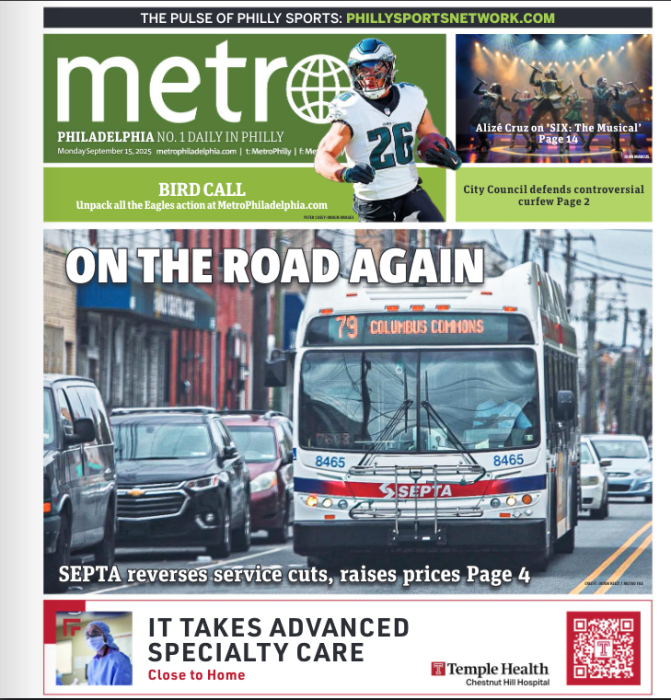 Gene Wilder falls in love with a sheep in Woody Allen’s “Everything You Always Wanted to Know About Sex (But Were Afraid to Ask),” one of the films in the sex-themed “Free to Love” series.
Gene Wilder falls in love with a sheep in Woody Allen’s “Everything You Always Wanted to Know About Sex (But Were Afraid to Ask),” one of the films in the sex-themed “Free to Love” series.
Credit: MGM
Sex, the film curator Amos Vogel wrote sarcastically in the 1970s, is “the most dangerous image known to man. Though it portrays the most universal, most fundamental, most desired human act, it mustn’t be shown.” Not much has changed, even as mores have loosened, as obscenity laws have dropped, as homosexuality, in some countries, has been decriminalized and (relatively) accepted. In fact, in some ways society has backslid.
“I noticed there was this strange resurgence of really extreme radical right wing attacks on things like Planned Parenthood and birth control,” said Jesse Pires, head curator of “Free to Love,” an ambitious film series that runs through mid-February at International House. “There was this phrase, ‘The War on Women,’ that was suddenly being bandied about. It reminded me of this era 40 to 50 years ago. I thought a lot of those arguments had been settled.”
The series seeks to re-open those discussions by looking at the fertile period of cinema during the sexual revolution of the 1960s and 1970s. The Production Code, which had kept Hollywood clean since 1934, had died. Along with profanity and realistic violence, sex had entered movies and the mainstream. “Regular” people were seeing underground cinema.
“It’s crazy to think there was a time when Time Magazine was writing about ‘I Am Curious (Yellow)’ and other controversial sex films,” Pires says, referring to the legendary Swedish quasi-documentary that became a surprise hit thanks to its realistic depiction of sex, including a girl planting a kiss on a flaccid penis. Upon its release it was targeted by many critics, including the liberal-minded Roger Ebert, who called it out as a scam job on a lustful nation. But time has been kinder to it, seeing it as a playful look at a in many ways repressed nation, and one that refreshingly treats sex as a casual mainstay of life.
That film — and its companion piece, “I Am Curious (Blue”), released the subsequent year — bookend the series. In between it seeks to be broad and representative. Those who remember a time when suburban couples flocked to X-rated films can see “Deep Throat” (Jan. 11) or Radley Metzger’s softcore “Score” (Jan. 24). The latter not only features the customary girl-on-girl pairing, but guy-on-guy — this at a time when homosexuality was still considered a mental deficiency. Other films explore the subject deeper, so to speak, including the radical German film “It is Not the Homosexual Who is Perverse, But the Society in Which He Lives” (Feb. 8) and the rare, polysexual Australian film “The Set” (Jan. 23).
Along with other obscurities, such as the New York underground film “The Telephone Set” (Jan. 8), the series includes major milestones, like “Flaming Creatures” (Jan. 16), Jack Smith’s avant-garde legend that was once banned and whose screenings were raided. On the other hand there’s “Bob & Ted & Carol & Alice” (Jan. 25), which Pires describes as “Hollywood’s sanitized version of the sexual revolution.” In the mix are also comic portrayals of sex, like “Barbarella” and Woody Allen’s “Everything You Always Wanted to Know About Sex (But Were Afraid to Ask)” (Feb. 14), featuring giant, rampaging mammaries and Gene Wilder in love with a sheep.
Apart from acting as a portal to a more freewheeling time, “Free to Love” is meant to refect on our own era. In this series Pires sees “this notion about having a healthy attitude towards sex and embracing diverse sexual practices — this belief that sex can contribute to a better society. There was this feeling that people were looking at the times — race riots, the Vietnam War — and saying, ‘We need to imagine a more utopian vision for our society.’ There’s this Freudian idea that if you’re suppressing sexual desires, that will come out in really dark and destructive ways.”
If you go:
Through Feb. 15
International House, 3701 Chestnut St.
215-387-5125
www.ihousephilly.org


























